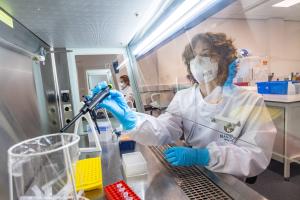New research reveals need for flexible, tailored support for domestic abuse survivors
A four-year evaluation has revealed the need for flexible domestic violence and abuse services that are tailored and responsive to survivors’ changing needs.
Bangor University has contributed to a four-year evaluation which has revealed the need for flexible domestic violence and abuse services that are tailored and responsive to survivors’ changing needs.
Funded by the Big Lottery’s Women and Girls Initiative, the work was led by academics at the University of Central Lancashire (UCLan) in partnership with Bangor University, the University of East London and Manchester Metropolitan University,
The research, published in a report today, analyses how domestic abuse support services in the UK can become more accessible to those that need them. Women’s Aid and SafeLives collaborated with survivors of domestic abuse to deliver their innovative Roadmap Programme across England over a period of 5 years.
The evaluation involved interviews and surveys about the experiences of 300 women and 70 children affected by domestic violence and abuse, spanning five sites across England.
Researchers found that survivors of domestic abuse valued services that were survivor-centred and enabled them to choose the pace and type of support they received, and that many needed help with parenting as well as support in their own right. When direct support was provided for children who had lived with domestic abuse, it could assist their mood, sleep, physical health and reduce their fear and anger. The study found examples of children who received support from Roadmap services successfully navigating key transitions in their lives.
The Public Health and Prevention Economics Research Group (PHERG) within the Centre for Health Economics and Medicines Evaluation (CHEME) at Bangor University undertook the Social Return on Investment (SROI) economic evaluation. Eira Winrow and Professor Rhiannon Edwards at CHEME used SROI analysis to examine the economic impact of the Roadmap Programme from the perspective of a wide range of stakeholders.
Professor Edwards explained:
“We found positive social values created for all the programmes studied that are provided by these charities. The social value of formal services was enhanced by the involvement of volunteers – many of whom were survivors – including those who volunteered as Ask Me Ambassadors to provide advice to women experiencing domestic abuse in their local communities. These findings will contribute to the development of statutory guidance on the UK government’s new Domestic Abuse Act, which became law earlier this year.”
“Roadmap staff also provided training for frontline workers who encountered domestic abuse in their work. This training improved professionals’ knowledge and confidence in responding to domestic abuse and staff employed in benefits offices, housing and children’s social care benefited from this training. However, health services were less likely to take up the training and were less likely to work collaboratively with Roadmap services.
Professor Nicky Stanley, from the Connect Centre for International Research on Interpersonal Violence and Harm at the University of Central Lancashire (UCLan), said:
“This extensive research demonstrates the vital role that specialist domestic abuse services play in supporting survivors and helping them to rebuild their lives.”
The full report can be read here.



